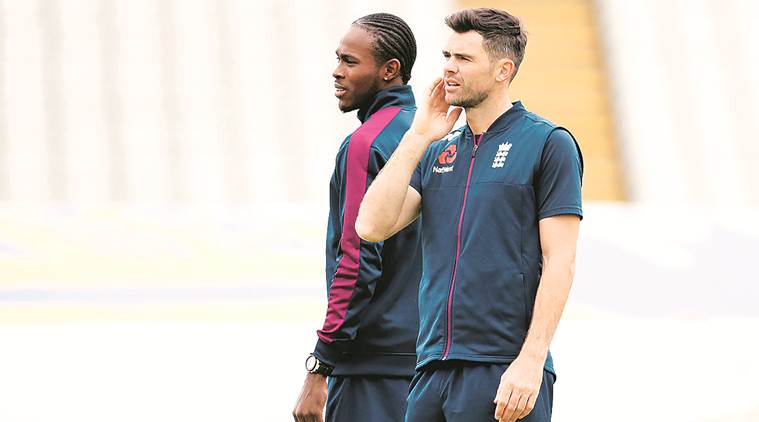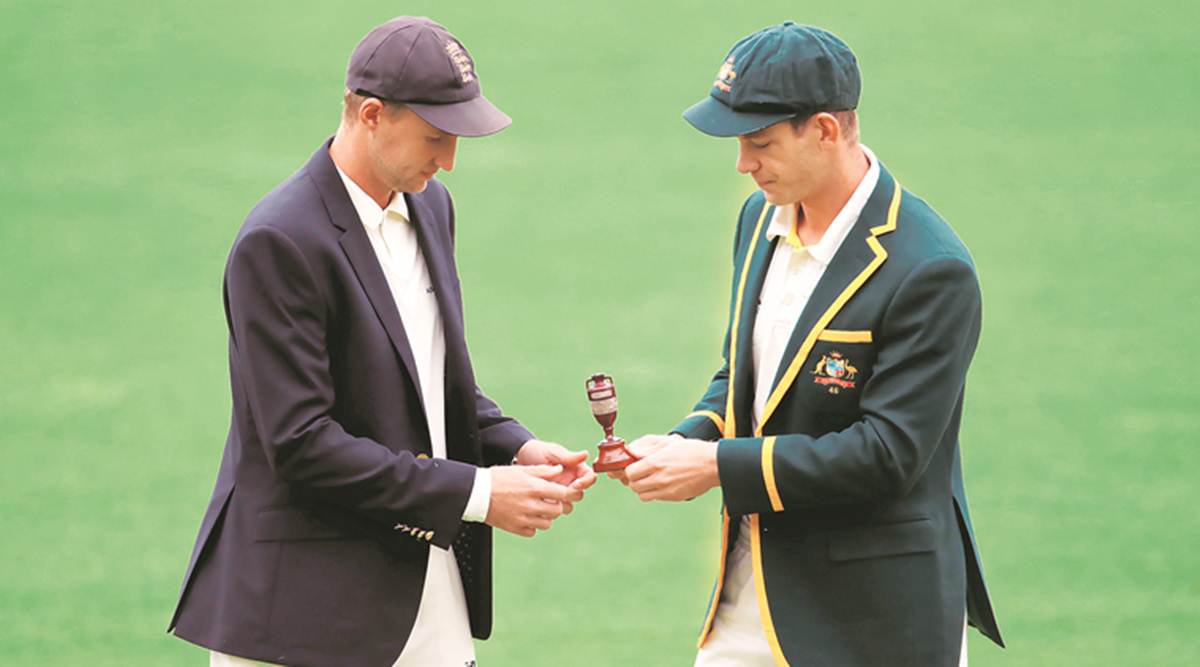Stay updated with the latest sports news across Cricket, Football, Chess, and more. Catch all the action with real-time live cricket score updates and in-depth coverage of ongoing matches.
Ashes 2019: With Test championship and shirt numbers, old rivalry is in a new bottle
The Ashes also marks the beginning of the World Test Championship (WTC), which adds extra significance to the series.
 Jimmy Anderson returns to lead the England attack while Jofra Archer sits out the first Test. (Reuters)
Jimmy Anderson returns to lead the England attack while Jofra Archer sits out the first Test. (Reuters)
The Ashes, cricket’s oldest rivalry, probably couldn’t have been resumed at a better time, on the heels of England’s World Cup win. Unlike the recent Lord’s final, The Ashes will not be available on free-to-air TV. And yet, for the next one-and-a-half months, the five-match Test series will arguably be the biggest sporting occasion in the UK, the Premier League’s August 10 commencement notwithstanding.
Delayed by a month
Traditionally, The Ashes in England is played in July and August. In 2015, the first Test started on July 8, while the series concluded on August 23, with England winning 3-2. This time, because of the World Cup, the series is delayed by a month, with the first Test commencing on Thursday at Edgbaston. This is peak summer in England and conditions are expected to be batting-friendly. The fourth and fifth Tests will be played in September though, at the break of autumn, when there’s more nip in the air. Last time when an Ashes Test was played in September, in 2005, Michael Vaughan’s England regained the urn, defeating Ricky Ponting’s Australia.
Read | Of quicks and composed, key players to watch out for
World Test Championship
The Ashes also marks the beginning of the World Test Championship (WTC), which adds extra significance to the series. This is part of a two-year cycle, when nine teams will vie for the top two spots reserved for the finalists. The WTC final will be played at Lord’s in June 2021. To start with, both England and Australia have 120 points to play for in this series and a Test win will secure 24 points. Also, after the ICC’s changed approach to slow over rates, a team will lose two points for every over they are short of.
 England captain Joe Root and his Australian counterpart Tim Paine pose with the urn at Edgbaston on Wednesday. (Reuters)
England captain Joe Root and his Australian counterpart Tim Paine pose with the urn at Edgbaston on Wednesday. (Reuters)
A la short form
For the first time in Test cricket, players will have their names and numbers on the back of their shirts. Both sets of players, by and large, have decided to stick to their limited-overs shirt numbers. For example, England captain Joe Root will wear No. 66. Back in March this year, the ICC decided to bring on shirt numbers in Tests as a “wider plan to promote Test cricket”.
Blaster at the top
The 29-year-old Surrey man was England’s X-factor at the World Cup, with 443 runs from eight matches. On his Test debut against Ireland last week, Roy, however, had a rude awakening, when he looked clueless against the moving ball in the first innings. But on a difficult Lord’s pitch, Roy bounced back to score 72 in his second dig. A lot will depend on how the opener fares against the Aussies. Geoffrey Boycott has already slammed the England top order in his Telegraph (London) column.
READ | World Test Championship Explained: A total of 71 Test matches played over 27 series
Pattinson on the prowl
The injury-prone Australian fast bowler is back into the Test fold after a three-year hiatus. A recurring lower-back problem hampered his career, but the 29-year-old appears to be in fine fettle at the moment. A tally of 11 wickets in his last two matches has made Pattinson almost an automatic choice for the first Test.
Archer has to wait
Jofra Archer’s eagerly-anticipated Test debut will be deferred, as he is still recovering from a side strain. Archer against Australia’s comeback duo of David Warner and Steve Smith – Cameron Bancroft, too, has returned after serving the ban – could have been mouthwatering. But fans will have to wait till the second Test at Lord’s.
A different ball game
It’s a different challenge for the batsmen when a red Dukes is in operation in England. Unlike the Kookaburra, it swings all day. Unlike the SG Test, it doesn’t lose its shape after 30-odd overs. England fast bowling great Jimmy Anderson is arguably the finest operator of a red Dukes, as his 368 wickets at 23.76 in 83 home Tests would attest. But Australia, too, have a strong pace attack at their disposal.
































